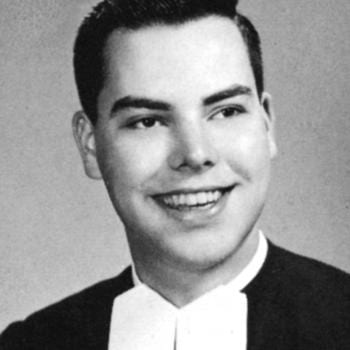It happened 70 years ago today: the Bishop of Munster, Germany climbed into the pulpit to condemn the Nazi’s euthanasia program. Bishop Clemens August von Galen later became a cardinal, and was beatified in 2005. L’Osservatore Romano takes note:
The bishop did not hide from his faithful the names of certain places nor his attempts to opposed such crimes, through legal means. For example, von Galen filed a complaint on July 28th with the Prosecutor of Munster, to protest the removal of patients from the hospital in Marienthal to the psychiatric hospital in Eichberg, where they could be eliminated far from prying eyes. He was never contacted about the case. He also wrote a letter to the headquarters of the Westphalia province regarding the hospital in Warstein, from which, the bishop said, 800 patients had already been removed.
“The way is open for the killing of all of us when we are old and infirm and thus unproductive,” to the point that, “no man is safe: any kind of commission could place him on the list of unproductive people who are ‘unworthy of living.’ And there will be no police to protect him, no tribunal to do justice to his assassin and to bring those responsible to justice. Who could have any faith in a doctor? They could determine that a patient is unproductive and then give instructions to eliminate him!” With a clarity that leaves no room for doubt, the Bishop describes in just a few words the result of such a un-appellable, summary judgment on the quality of life of a person based on his capacity to produce or not: simply, the destruction of medicine based on that relationship of trust and conscience, which is the first and fundamental therapeutic resource.
You can read more of the homily at this link, which also discusses its impact:
The sermon sent a shockwave through the Nazi leadership all the way up to Hitler. As a result, on August 23, 1941, Hitler suspended Aktion T4 which had accounted for nearly a hundred thousand deaths by this time.
The Nazis pondered what to do about the Cardinal. They eventually retaliated by arresting and then beheading three parish priests who had distributed his sermon, but left the Cardinal unharmed to avoid making him into a martyr.
However, the Nazi euthanasia program quietly continued, but without the widespread gassings. Drugs and starvation were used instead and doctors were encouraged to decide in favor of death whenever euthanasia was being considered.












